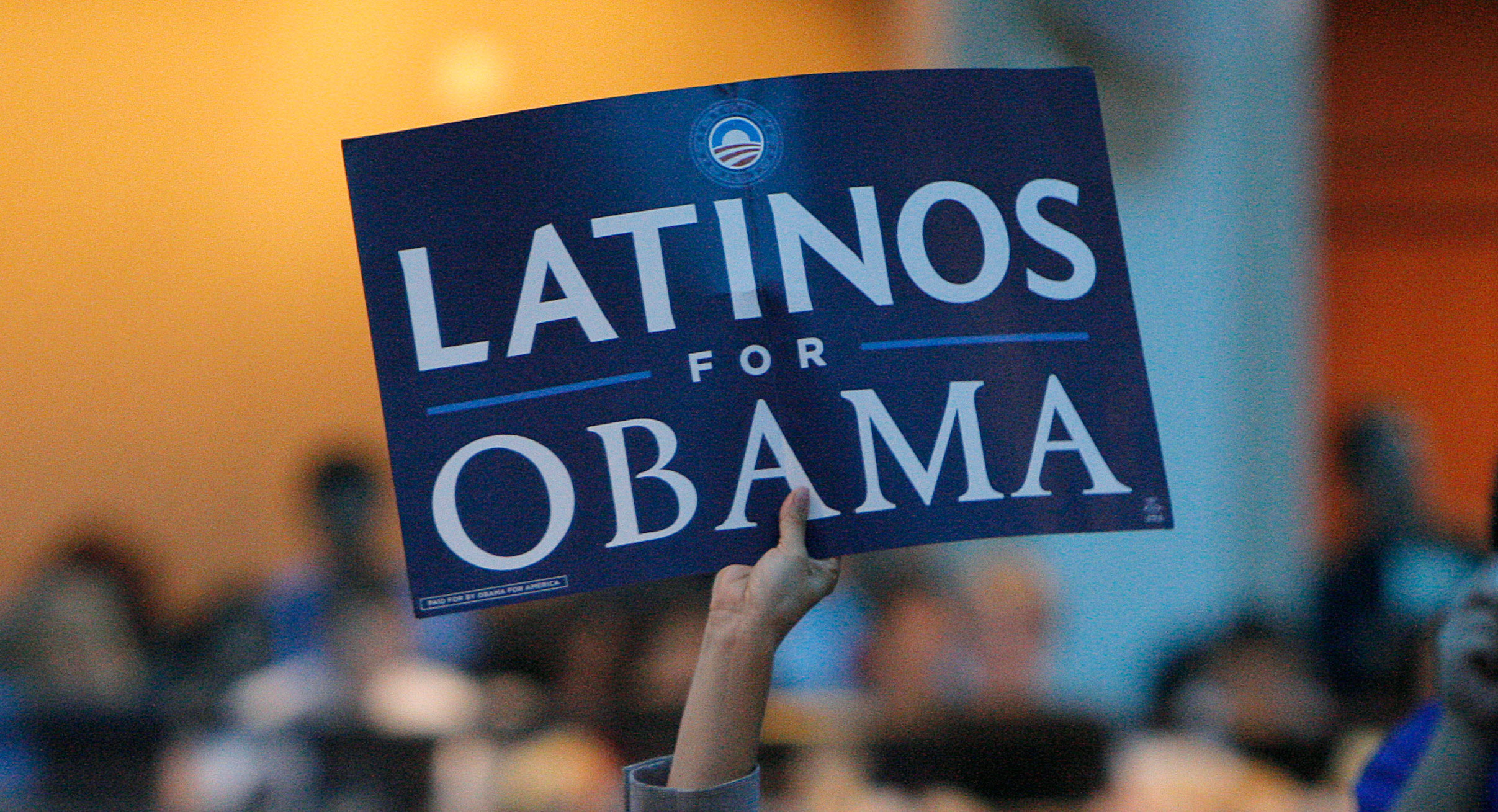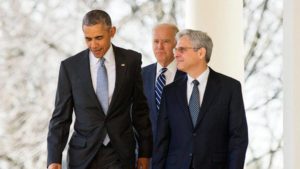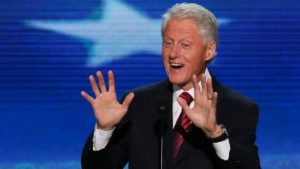As the Obama Administration struggles with its latest self-created crisis, aimlessly fumbling about in its attempts to house and feed and clothe the tens of thousands of poor immigrant children who have streamed across the border in recent months, the American public is hearing an oft-repeated narrative about these children and their (literally) countless predecessors that goes something like this: A child is born hundreds of miles away from the continental United States, and spends a significant portion of his childhood raised in Third World poverty. His is a life of unpaved streets and only occasional electricity. Before long he is sent away to live with relatives, with practically an entire world separating himself from his parents. When he finally sets foot on the American mainland it is to attend school and pursue a better future, but, being an outsider, he struggles to fit in. His is a story common for a Latino immigrant.
It is also our President’s story.
Yes, our President is a natural born American citizen, he having been birthed in Hawaii, and even had he not, natural born nonetheless by virtue of his mother’s citizenship. But for all intents and purposes his is the story of an immigrant, having split his childhood between his birthplace a good 2500 miles away from the American West Coast, at a time when Hawaii had only recently become a state and which shared little culturally with the rest of America, and also in woefully impoverished Indonesia, finally arriving on the North American continent in his late teens to attend college in a land that would have seemed very foreign to him.
This is, by any parlance, an immigrant’s experience. And of all the immigrant groups who have come to this country over the generations, his experience most closely resembles, indeed almost parallels perfectly the Hispanic immigrant experience.
Obama has always been the perpetual outsider looking in, never fitting comfortably in any one group, forever stuck in an ethnic limbo between black and white, the young Obama too pigmented and impoverished to pass for white middle class, but too far removed from the African-American cultural experience to have an authentic solidarity with them. Remember, our “first African-American President” is also the first African-American in his family, as his mother was white and his father was from Kenya.
This is not somebody who had shared in African-American civil rights struggles. Neither he nor his family had ever faced American fire hoses, or segregated schools and lunch counters and bathrooms, or been told to ride in the back of the bus, or escaped Southern hostility by migrating north only to be warehoused in “projects.” That is not to say that he was raised in privilege. Of course not. Only that he is not heir to the legacy of the African-American experience so much as he has inherited the immigrant experience.
What’s more, over time Obama shared increasingly less with the African-American community than in his youth, as the older Obama became almost entirely the product of privilege coming from institutions that traditionally excluded African-Americans, or relegated them to subservient roles: Columbia, Harvard, the University of Chicago, Wall Street, Hollywood, and etcetera. The American inner city poor are foreign to him, more a curious project for an ambitious community organizer descended from on high (and residing as he did in a $1.65 million mansion, comfortably segregated from urban blight) than a people he could call his own.
And it’s a people he’s largely neglected. One is hard-pressed to think of what he has done for the black community during his presidency. Unless he’s going to a fundraiser he avoids impoverished urban areas like they’re infested with plague, preferring instead the golf course or some other leisurely resort location. Meanwhile, he’s endangered black children by shortening sentences for convicted drug dealers and seeking to release thousands more, returning them mostly into black communities. He and his administration sued the state of Louisiana to take away school vouchers from black children, to force them back into failing schools. In that same vein, he has fought to take away opportunity scholarships from poor black children who had been using them to escape the failing Washington D.C. public school systems.
Not that he sends his children to the D.C. public schools, of course.
Sure, he’s doubled the number of people on food stamps during his time in office, and undoubtedly many of the new recipients are African-American, but having more people on public assistance is not really something of which to be proud. On this point, Republicans and Democrats differ (unbelievably), but ask any poor person whether they’d rather have a handout or an opportunity, and opportunity would win out almost uniformly.
It’s too bad African-Americans are not seeing those opportunities. Their schools are still failing their kids miserably, their families are not more intact, and African-American unemployment is at heights otherwise unseen in the civilized world. African-Americans are by no measure better off today than when Obama took office, even though their struggles are at levels that no decent person should tolerate, much less America’s “first black President”!
And if we’re being honest with one another, to grant citizenship to almost all of the estimated 11 million people who came here illegally as Obama wants, or even permanent residency, will only increase those struggles. Such policy can only add to the number of people sharing in welfare resources previously reserved for America’s poor, taking up classroom space in urban schools, and competing against African-Americans for jobs. Even those of us who support some variation or other of immigration reform cannot help but notice these obvious truths, and until the President addresses them convincingly one cannot blame African-Americans for angrily protesting Obama’s immigration policy, complaining that such policy neglects black communities and even harms them. As African-American columnist Jennifer Oliver O’Connell recently wrote, no doubt channelling the frustrations of many others:
“Save for knee-jerk reactions over Henry Louis Gates’ altercation with a Cambridge policeman and during the George Zimmerman trial, the president has mostly lectured and talked down to the black community, while doing nothing concrete to address the problems that plague it.”
But those are not his people. African-Americans are his most loyal supporters, attracted to him by a shared ethnicity, but they will always be separated from him by divergent backgrounds.
His people are the border crossers, intrepidly coming to an unfamiliar land from a faraway place, knowing few people if anybody, not fitting comfortably within any of America’s established and largely insular social spheres. It is with them that he feels the greatest sense of solidarity because they share with him the immigrant experience, alien as they are among an unfamiliar population.
And this is especially true of the children, the castaways as he once was, often separated from their parents, refugees not from any sort of political oppression but from poverty endemic to their land. Someday they will be the foreign college students, just as he was in a sense. Is it any wonder he relates so well to the Dreamers?
There’s just something different about him when you see him surrounded by adoring throngs of Latinos. He always got a high from the breathless adulation of screaming college students (who wouldn’t?), and he always appreciated the unflagging loyalty from black voters. But with the Latinos he embraces back. Around them he doesn’t celebrate himself so much as he celebrates in finding others like him. This is not the carefully choreographed Obama, the product of marketing and makeup and primp and polish that we’ve all come to know. Indeed, that’s all that we’ve known. But Latinos transform him into human Obama, a man at his most sincere, a man of (I can’t believe I’m writing this!) true compassion and vulnerabilities. To witness it is actually quite moving. One can almost detect in his eyes a love reserved for found friends and family, and in their eyes the “hope” that the rest of us have long since forgotten. But they see it because in him they see themselves, and in them he sees himself.
Cynics say that Obama’s position on immigration is entirely self-serving and transparent: get as many future Democrats into the country as possible, get them voting as quickly as possible, worry about the details later, and impose the costs on somebody else. The problem with cynics is that they can sometimes be right, and it is hard not to notice Democrats at all levels salivating at the prospect of so many new voters. Surely the President is not ignorant of the short and long-term political advantages of amnesty. But I think we do ourselves a disservice if we fail to notice what should have been obvious, that there is a very real bond between these people and this president. He is one of them, and to reject them is to reject him. So he demands not just permanent residency for them but citizenship, and not just because of their vote, but because their struggle was and is his struggle. They are him, so to afford them less status than full citizenship is to make him a second class citizen. That’s a label that he wore for too long.
So understand that this is not just something he takes seriously, it’s something he takes personally. He demands citizenship for these immigrants because through naturalizing them he’ll be naturalizing himself. He, our first Latino president.



